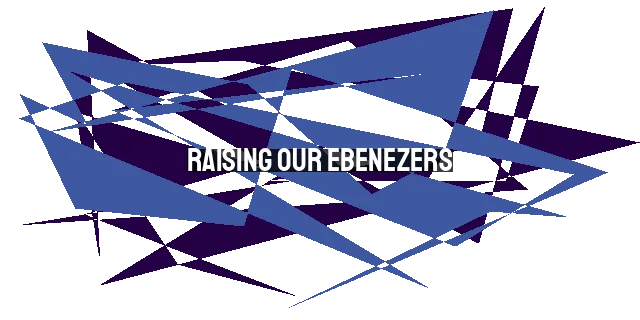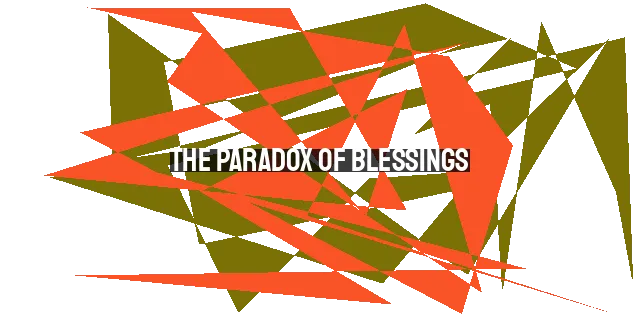Confessions of a Theoretical Continuationist: Overcoming Functional Cessationism
Confessions of a Theoretical Continuationist Turned Functional Cessationist
Are the gifts of the Holy Spirit still active in the church today? As a theoretical continuationist, I have always believed that they are. However, in practice, I often live like a functional cessationist. I confess that I have not always been faithful in seeking and utilizing the gifts of the Spirit in my life and ministry.
The Theoretical Continuationist
As a theoretical continuationist, I believe that the gifts of the Holy Spirit are still active in the church today. I reject the cessationist viewpoint that certain spiritual gifts ceased when the apostolic age came to an end. Paul’s argument that tongues and prophecy will end “when the perfect comes” (1 Corinthians 13:8–10) is a reference to the second coming of Christ, not the close of the biblical canon.
Furthermore, I believe that the Holy Spirit gives gifts to believers for the building up of the church and the spread of the gospel (1 Corinthians 12:7–11). These gifts include wisdom, knowledge, faith, healing, prophecy, discernment, tongues, and interpretation of tongues. I believe that all of these gifts are still available to believers today.
The Functional Cessationist
Despite my theoretical continuationist beliefs, I must confess that I have often lived like a functional cessationist. In other words, I have believed in the continuation of the gifts of the Spirit in theory, but I have not always sought to utilize them in practice.
For example, I have not always prayed for the sick to be healed or asked for prophetic words of encouragement for others. I have not always sought the gift of discernment when facing difficult decisions or situations. I have not always spoken in tongues or interpreted tongues in private prayer or corporate worship.
Why have I lived like a functional cessationist despite my theoretical continuationist beliefs? There are several reasons.
Fear of Excesses and Abuses
One reason is my fear of excesses and abuses in the use of spiritual gifts. I have seen instances where the use of gifts has been marked by showmanship, manipulation, and even deception. I have seen people claim to have a word from the Lord that was clearly not from Him. I have seen people speak in tongues loudly and disruptively in corporate worship services.
These experiences have made me cautious and even skeptical of the use of spiritual gifts. I don’t want to be associated with the excesses and abuses of the charismatic movement. I don’t want to give the impression that I believe in a “name it and claim it” theology or that I think that every sickness can be healed instantly.
However, I realize that my fear of excesses and abuses should not lead me to reject the gifts of the Spirit altogether. Rather, it should lead me to seek the guidance of the Holy Spirit in the proper use of these gifts.
Intellectualism and Pragmatism
Another reason why I have lived like a functional cessationist is my intellectualism and pragmatism. As someone who values theological education and intellectual rigor, I have been prone to view the gifts of the Spirit as subjective and emotional experiences that are difficult to discern and evaluate.
Furthermore, as someone who is focused on results and outcomes, I have been prone to view the gifts of the Spirit as less important than practical skills and strategies for ministry. I have been more concerned with developing my preaching and teaching skills than with seeking the prophetic and healing gifts of the Spirit.
However, I realize that my intellectualism and pragmatism should not lead me to neglect the gifts of the Spirit. Rather, it should lead me to seek the integration of sound doctrine and spiritual power in my life and ministry.
The Renewal of the Theoretical Continuationist
How can I renew my commitment to the theoretical continuationist beliefs that I hold? How can I move from being a functional cessationist to being a functional continuationist?
The Primacy of Love
The first step is to recognize that the primacy of love is essential to the proper use of the gifts of the Spirit. Paul reminds us that “if I have prophetic powers, and understand all mysteries and all knowledge, and if I have all faith, so as to remove mountains, but have not love, I am nothing” (1 Corinthians 13:2).
We must seek to use the gifts of the Spirit in a way that reflects the love of Christ for His church and His world. We must seek to use the gifts of the Spirit in a way that builds up the body of Christ and advances the kingdom of God. We must seek to use the gifts of the Spirit in a way that honors the character of the Holy Spirit and the integrity of the gospel.
The Pursuit of Humility
The second step is to pursue humility in the use of the gifts of the Spirit. Paul warns us against the dangers of pride and self-promotion in the exercise of spiritual gifts. He reminds us that “there are varieties of gifts, but the same Spirit; and there are varieties of service, but the same Lord; and there are varieties of activities, but it is the same God who empowers them all in everyone” (1 Corinthians 12:4–6).
We must seek to use the gifts of the Spirit in a way that recognizes our dependence on God and our interdependence with others. We must seek to use the gifts of the Spirit in a way that values the diversity of gifts and callings in the body of Christ. We must seek to use the gifts of the Spirit in a way that fosters unity, not division, in the church.
The Practice of Discernment
The third step is to practice discernment in the use of the gifts of the Spirit. Paul exhorts us to “test everything; hold fast what is good” (1 Thessalonians 5:21). He warns us against quenching the Spirit (1 Thessalonians 5:19) and against believing every spirit (1 John 4:1).
We must seek to use the gifts of the Spirit in a way that discerns the voice of God from the voice of the flesh, the world, and the devil. We must seek to use the gifts of the Spirit in a way that is consistent with the teaching of Scripture and the character of God. We must seek to use the gifts of the Spirit in a way that is accountable to the leadership and the community of the church.
The Pursuit of Faith
The fourth step is to pursue faith in the use of the gifts of the Spirit. Paul reminds us that “without faith it is impossible to please [God], for whoever would draw near to God must believe that he exists and that he rewards those who seek him” (Hebrews 11:6).
We must seek to use the gifts of the Spirit in a way that trusts in the power and the promises of God. We must seek to use the gifts of the Spirit in a way that takes risks and steps out of our comfort zones. We must seek to use the gifts of the Spirit in a way that expects and anticipates the supernatural intervention of God in our lives and in the lives of others.
The Conclusion of a Renewed Theoretical Continuationist
As a renewed theoretical continuationist, I am more committed than ever to the belief that the gifts of the Holy Spirit are still active in the church today. I am more convinced than ever that the Holy Spirit gives gifts to believers for the building up of the church and the spread of the gospel.
However, I am also more aware than ever of my need to seek and utilize these gifts in my life and ministry. I am more aware than ever of my need to overcome my fears, my intellectualism, and my pragmatism. I am more aware than ever of my need to prioritize love, humility, discernment, and faith in the use of the gifts of the Spirit.
May we all be renewed in our commitment to the gifts of the Spirit and to the work of the Holy Spirit in our lives and in our world.



POST COMMENT
For post a new comment. You need to login first. Login
COMMENTS(0)
No Comment yet. Be the first :)